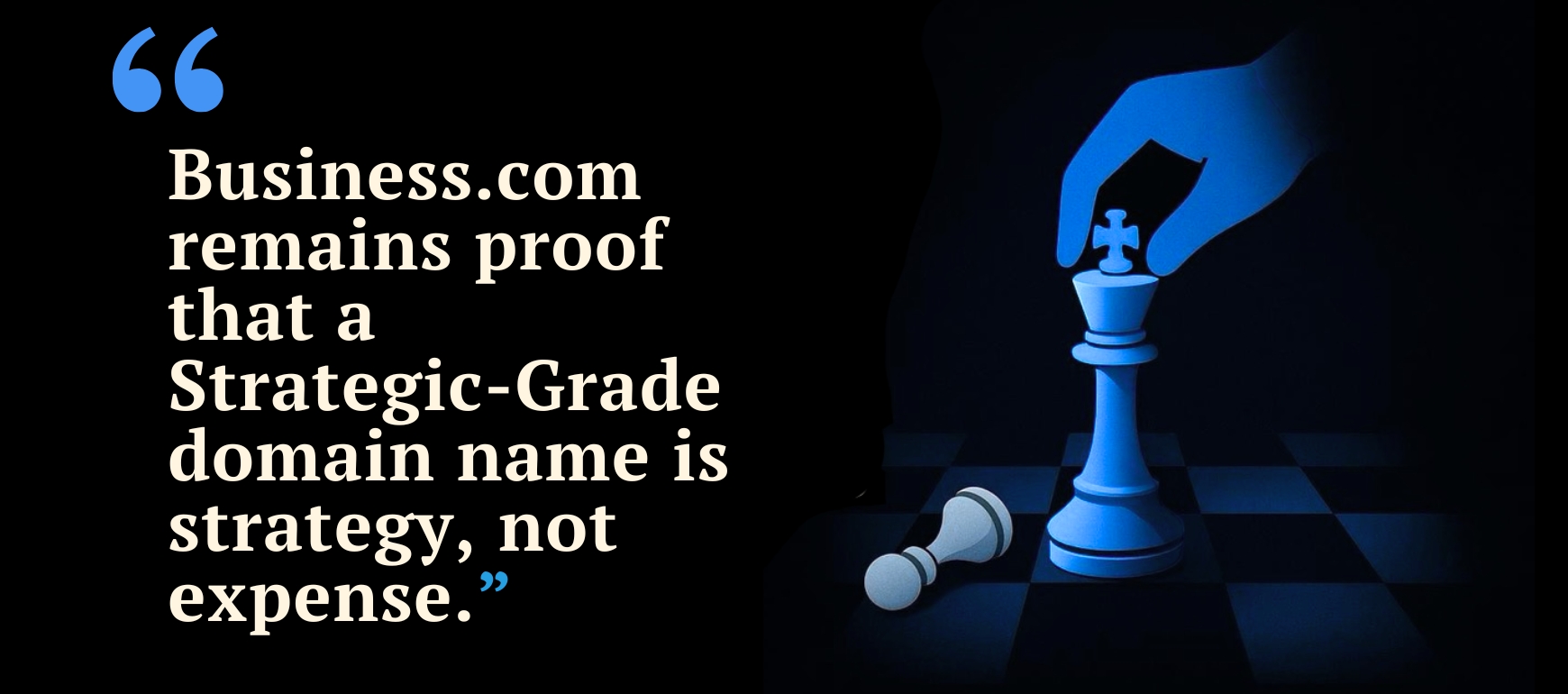Few digital assets have ever illustrated the pure leverage of a domain name as completely as Business.com. When entrepreneur Jake Winebaum acquired the domain in 1999 for $7.5 million, headlines called it extravagant. In hindsight, it was visionary. The single word “business” captured an entire economy online, a perfect anchor for the B2B search and directory platform that followed.
Building an Identity Around a Word
Owning Business.com meant owning the category’s most natural address. Every search, citation, and link carried an inherent trust signal. The site quickly drew organic traffic simply because of what it was called. It became a B2B powerhouse built entirely on the credibility of its name, with the domain name itself serving as both brand and distribution channel.
The Exit That Proved the Point
In July 2007, R. H. Donnelley, acquired Business.com enterprise for about $345 million in cash. The deal covered a company projected to generate $50 million in annual revenue and $15 million in profit. It included the domain names Business.com and Work.com, along with a team of about 100 employees and over 6,000 advertisers. The acquisition expanded Donnelley’s digital presence and demonstrated the commercial power of a category-defining domain name in driving company value.
Why the Domain Name Drove the Deal
Analysts noted that much of the valuation reflected the power of the domain name itself. Wired observed that ninety percent of the business’s value can be attributed to the domain name. The reasoning was simple: whoever controlled Business.com controlled perception. It signaled authority, owned the search term “business,” and enjoyed direct navigation from millions of curious users. Even a parked version of the domain could rake in a few million dollars a year in advertising revenue without trying.
In financial terms, the acquisition treated the domain name as an indefinite-lived intangible, similar to how Cars.com or Voice.com are now recognized in balance sheets. It demonstrated to both corporate and venture investors that certain domains don’t just support a business - they are the business.
Lessons for Founders and Investors
Business.com remains one of the earliest and clearest examples of how a category-defining domain name can amplify exit value. When a name embodies the market it serves, buyers attribute value beyond standard financial multiples. Strategic-Grade domain names like Business.com function as enduring intangibles, assets that anchor trust, visibility, and long-term enterprise worth.
Final Thoughts
The Business.com story reminds investors that value in the digital economy often begins with control of attention. The right domain name concentrates that attention in one place, building equity long before a product, service, or campaign begins to scale.
Explore how Strategic-Grade domain names shape acquisition outcomes and investor confidence.
List your domain or post a request for a high-impact name at DomainsForEquity.com.


 by Tsani
by Tsani